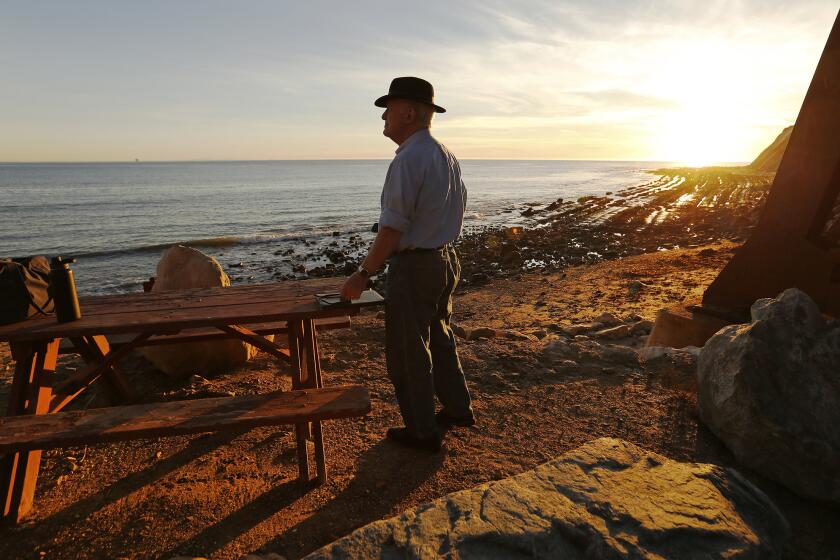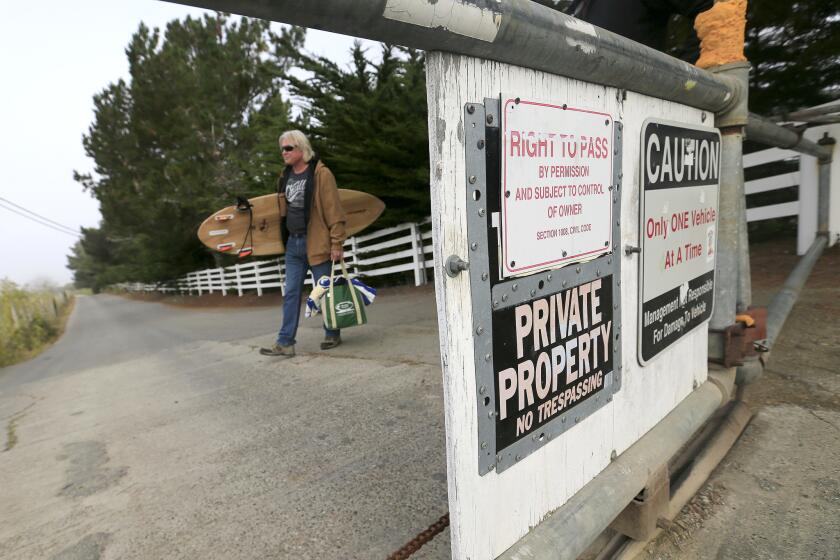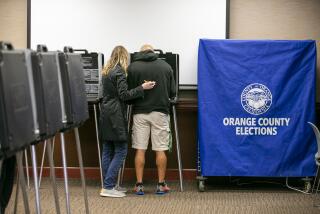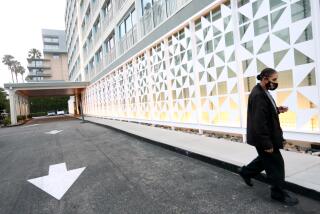California sues Silicon Valley billionaire over Martins Beach public access
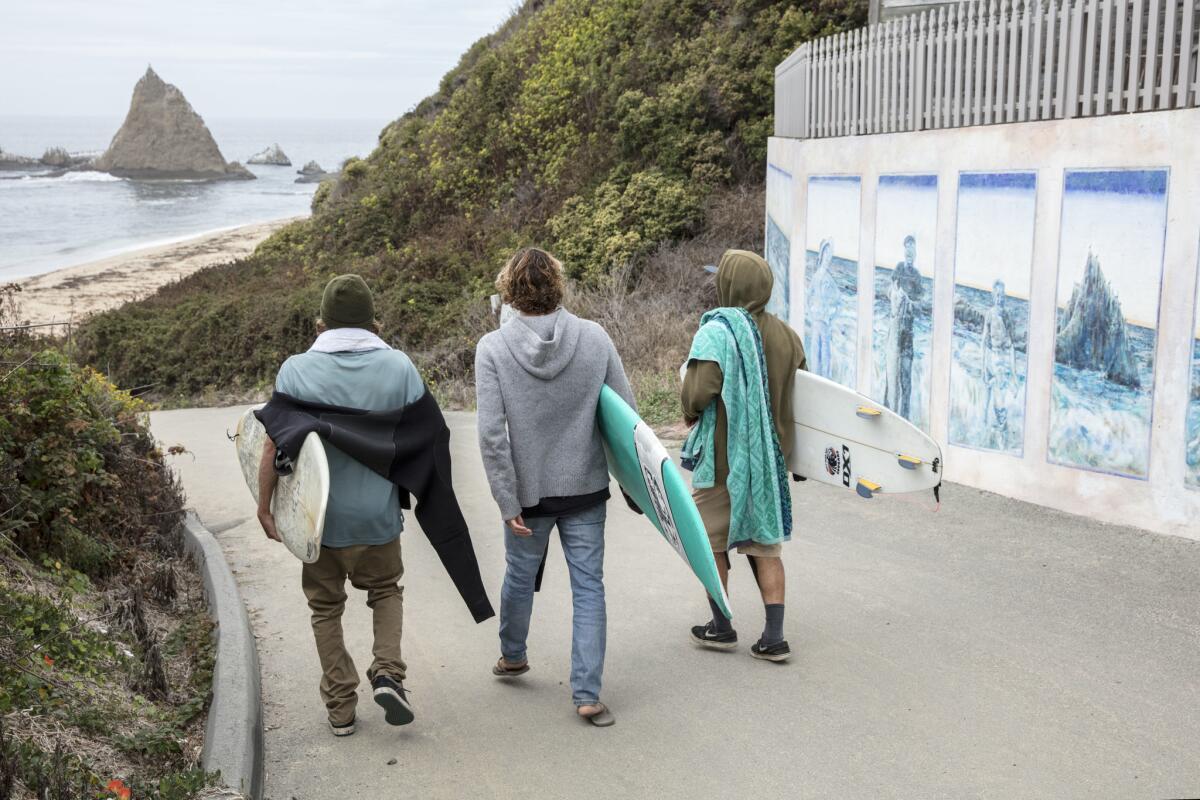
California officials on Monday sued a Silicon Valley billionaire who has fought for more than a decade to keep a popular beach to himself — a move to end one of the most intense and high-profile public access battles in the state.
Vinod Khosla’s attempts to control access at Martins Beach, a picturesque stretch of sand in San Mateo County, has become a cause célèbre for beachgoers across California and prompted a spate of lawsuits over the years by nonprofits and local groups that grabbed national headlines.
Now, the state is suing. The California State Lands Commission and Coastal Commission contend that, without court orders, Khosla will “continue to deny, impair and obstruct” the public’s right to use Martins Beach. The stakes are high and could set the stage for how other wealthy oceanfront owners across the state might fight to make a beach private.
“This case goes to the heart of California’s public access mandate,” said Steve Padilla, who chairs the Coastal Commission. “We cannot allow this to be chipped away each time someone purchases beachfront property — it’s a dangerous precedent for the future of public access in California.”
Dori Yob Kilmer, an attorney for Khosla, said in a statement that the state’s claims “have been extensively litigated and repeatedly rejected by the courts in a prior lawsuit.”
“Since the property was purchased by our client, the state, and small activist groups, have endeavored to seize our client’s private property without compensation,” she said. “While such tactics are commonplace in communist systems, they have never been tolerated in the American system where the U.S. Constitution precludes the government from simply taking private property and giving it to the public.”
The lawsuit, filed in San Mateo County Superior Court by the state attorney general, comes at a time when top California officials are drilling down on some of the hardest — and longest-fought — battles for coastal access.
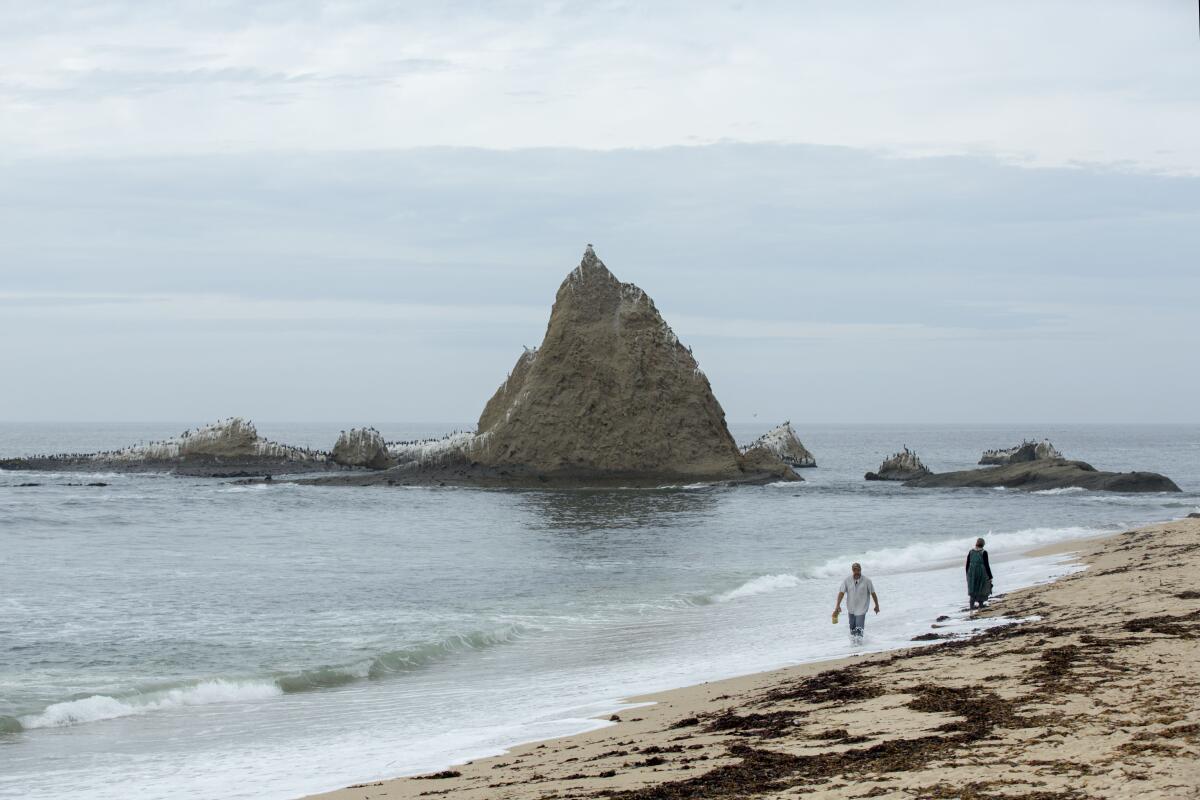
Since a landmark law proclaimed in 1976 that the beach is for everyone, coastal officials have chipped away at locked gates, private roads and communities that try to keep the public out. What’s left are a handful of high-profile holdout cases against some of the state’s wealthiest and most powerful.
At Hollister Ranch in Santa Barbara County, where pristine beaches have been in dispute for decades, four state agencies joined forces last year to implement a long-delayed public access program. Gov. Gavin Newsom, in his first year leading the state, signed a law setting deadlines on when the public must be allowed in.
The law declares that the public must be allowed to enter Hollister Ranch by land and access some of its 8.5 miles of shoreline by April 2022.
At Martins Beach, the fight appeared to quiet down in 2018 after the U.S. Supreme Court rejected Khosla’s appeal on a lawsuit by the Surfrider Foundation that had zeroed in on whether he needed state permission to gate off the main road.
The California Coastal Act for decades has scaled back mega-hotels, protected wetlands and, above all, declared that access to the beach was a fundamental right guaranteed to everyone.
But two months ago, an appeals court in San Mateo County ruled in favor of Khosla on yet another case that had been kicked back and forth. The legal argument here, filed by a local group called Friends of Martins Beach, centered on whether the former property owners had already granted public rights to use the beach, road and parking lot.
In her statement Monday, Khosla’s attorney pointed to this ruling — the panel acknowledged the spirit of the state’s coastal access law, but also said the evidence failed to show that the former owners had dedicated this use to the public.
This legal argument by activist groups, she said, “was twice rejected — by two different judges.”
State officials have been following these cases closely and are now taking a swing at Khosla. The new lawsuit asks the court to consider unexamined evidence that shows that the beach, as well as the gated road, have been historically used by the public — citing a common law doctrine known as “implied dedication.”
The Coastal Commission, officials said, spent several years collecting evidence from more than 225 people — including written accounts, photographs, personal journal entries and news articles that show public use as early as the 1800s.
“Members of the public traveled from near and far to use Martin’s Beach. ... They came to fish, swim, surf, picnic, camp, play and celebrate,” the lawsuit says. “For as far back as can be historically documented, the public has used and treated the beach as a public beach, and the previous owners knew of that public use and did not interfere with such use.”
The battle over access at Martins Beach dates to 2008, when Khosla, a co-founder of Sun Microsystems, bought the 89-acre property south of Half Moon Bay for $32.5 million.
The Deeney family, which sold the property, had for almost a century maintained a public bathroom, a parking lot, even a general store. There were swings, picnic tables, garbage cans and restrooms, coastal officials said. Signs advertising Martins Beach to the public were posted over the years along Highway 1 and Highway 92.
Surfers, fishermen and picnickers paid 25 cents. The parking fee eventually rose to $10.
Khosla, in legal filings, said he “was willing to give the business a go, and continued to allow members of the public to access the property upon payment of a fee. But [he] soon faced the same problem the Deeneys had faced: The business was operating at a considerable loss, as the costs of keeping the beach, the parking lot and other facilities in operable and safe condition significantly exceeded the fees the business generated.”
So he shut the gate, hired security and posted “do not enter” signs.
A number of public-interest groups have since sued Khosla. He, in turn, has sued the Coastal Commission, the state Lands Commission and San Mateo County, over what he considers interference with his property rights.
In an interview in 2018 with The Times, Khosla said he believed in the Coastal Act but that fighting this case had been a matter of principle for him.
“My view is, absolutely we should increase coastal access when we can,” he said, “but we should also protect private property rights. This is about principle. Reasonableness is all I ask for.”
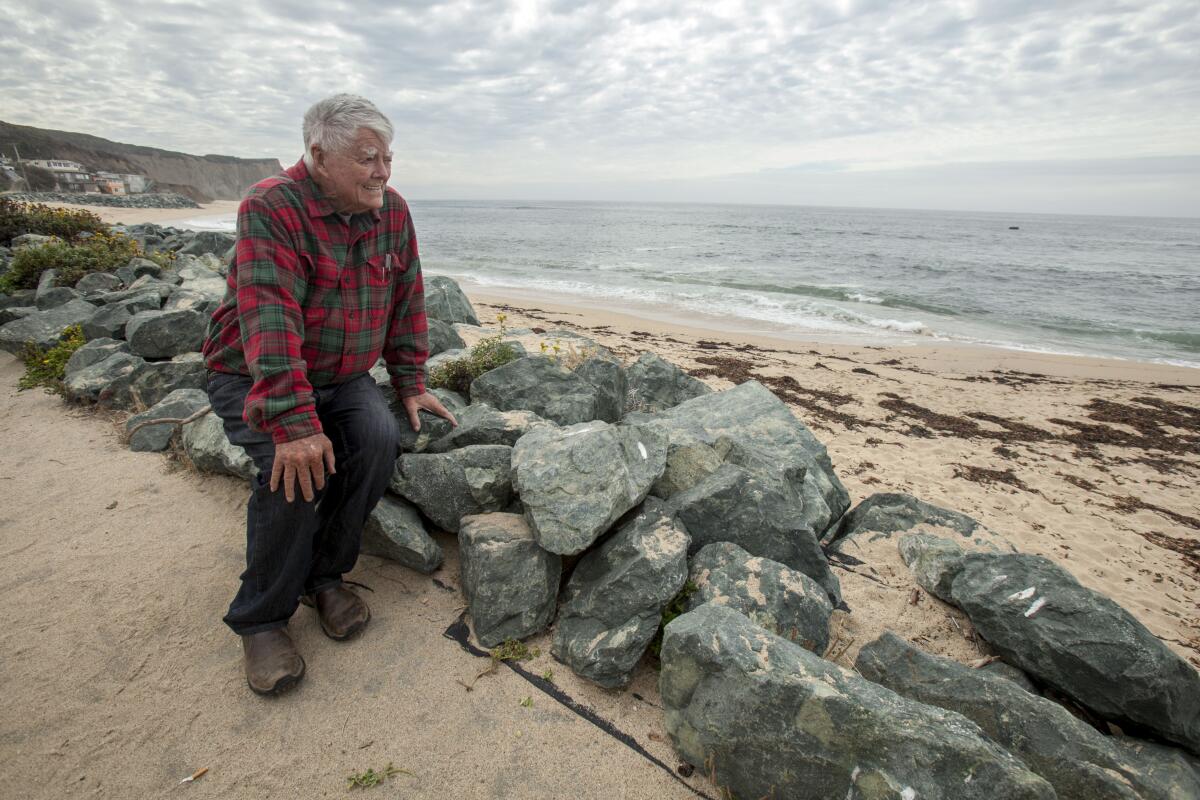
Since the Supreme Court declined to hear his case, the gate has been open during daylight hours. An attendant operates a small parking lot, guiding visitors down a winding ramp to a secluded crescent-shaped stretch of sand and bluffs.
Coastal officials say that’s not good enough. The lawsuit asks for a public right of way to the beach and Martin’s Beach Road, the only practical pathway from Highway 1. It also asks the court to require Khosla to remove all existing gates and any signs on or near the road that might discourage the public from entering or using the beach.
“Over multiple decades, Martin’s Beach and Martin’s Beach Road have provided coastal access to the public in a region that lacks other meaningful access points,” the lawsuit says. Khosla has, “in different manners and to varying degrees, improperly and illegally restricted the public’s access.”
There is also an important difference, officials say, between charging for parking and charging for access to the beach itself. In the past, beachgoers could be dropped off, and surfers would walk or bike in.
“While some users paid a parking fee for convenience,” the lawsuit says, “many others parked without paying or parked offsite and accessed the subject property without paying a fee.”
The state has been preparing to support public uses of this beach. An account was recently created to gather donations to appraise, acquire and maintain a public accessway at the beach. The Lands Commission in the past has suggested a public route operated like a park — with daily dawn-to-dusk hours of operation, trash bins and portable toilets.
The fund so far totals a little over $1 million, supported by seven donations and a transfer from the commission.
Access advocates on Monday said they’ve long hoped for the state to take on this fight. The Surfrider Foundation, in addition to winning their own lawsuit against Khosla, has been gathering stories from beachgoers that could be used by officials as supporting evidence.
The state must defend the public’s right to all beaches in California, said Jennifer Savage of Surfrider. “We want to ensure that all people, from the families who’ve visited Martins for generations to new visitors from elsewhere, are able to exercise their right to enjoy our treasured California coastline.”
Lt. Gov. Eleni Kounalakis, who also chairs the California State Lands Commission, said “this lawsuit is a critical part of California’s ongoing efforts to ensure public access and to protect the public’s rights to access its golden shores.”
“California’s coastline,” she said, “belongs to everyone.”
More to Read
Start your day right
Sign up for Essential California for news, features and recommendations from the L.A. Times and beyond in your inbox six days a week.
You may occasionally receive promotional content from the Los Angeles Times.
